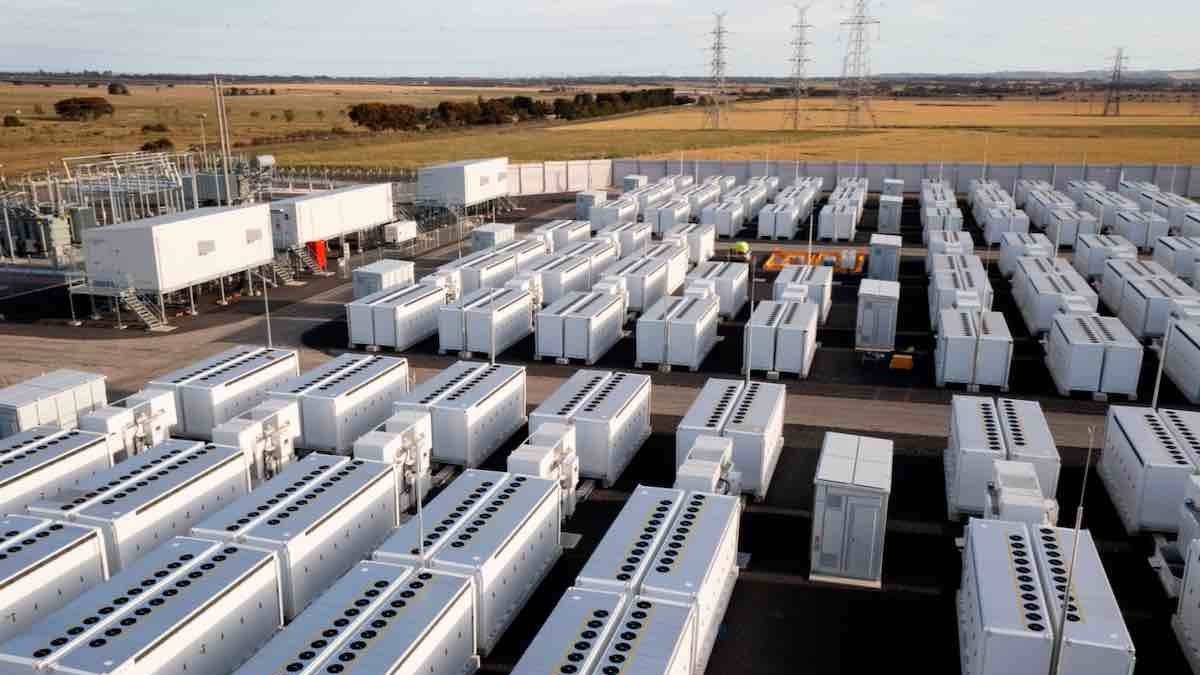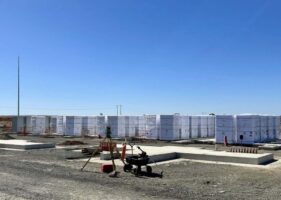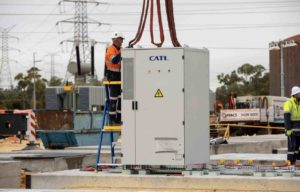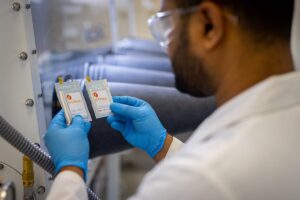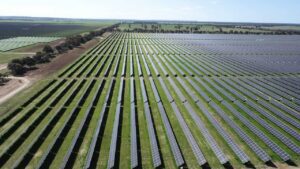Researchers from the University of Sydney say they have developed a new type of sodium-sulphur battery which they boast offers “super-high capacity and ultra-long life”, and which will be much cheaper than traditional batteries.
Sodium-sulphur batteries are not new, having been around for several decades, but they have been a significantly inferior alternative to traditional lithium-ion batteries – such as those pictured above at the Victoria Big Battery – due to low energy capacity and short life cycles.
However, a research team led by Dr Shenlong Zhao from the University of Sydney’s School of Chemical and Biomolecular Engineering has developed a new type of sodium-sulphur battery.
Using a simple pyrolysis process and carbon-based electrodes, which help to improve the reactivity of sulphur and the reversibility of reactions between sulphur and sodium, the researchers claim their new battery offers four times the energy capacity of lithium-ion batteries and is far cheaper to produce.
The eponymous key ingredient in the sodium-sulphur (Na-S) battery is a type of molten salt that can be processed from sea water, which Earth has quite a lot of. As such, the main battery ingredient costs much less to produce than lithium-ion batteries.
According to the University of Sydney researchers, the Na-S battery is more energy dense and less toxic, making it an even more attractive alternative to lithium-ion batteries which, though ubiquitous in electronic devices and for energy storage systems, are nevertheless expensive to manufacture and recycle.
The Na-S battery developed by Dr Shenlong Zhao’s team has been specifically designed to provide a high-performance solution for large-scale renewable energy storage systems.
“Our sodium battery has the potential to dramatically reduce costs while providing four times as much storage capacity,” said Dr Zhao.
“This is a significant breakthrough for renewable energy development which, although it reduces costs in the long term, has had several financial barriers to entry.
“When the sun isn’t shining and the breeze isn’t blowing, we need high-quality storage solutions that don’t cost the Earth and are easily accessible on a local or regional level.
“We hope that by providing a technology that reduces costs we can sooner reach a clean energy horizon. It probably goes without saying but the faster we can decarbonise — the better chances we have of capping warming.
“Storage solutions that are manufactured using plentiful resources like sodium – which can be processed from sea water – also have the potential to guarantee greater energy security more broadly and allow more countries to join the shift towards decarbonisation.”
The researchers have developed laboratory-scale batteries, which have also been successfully fabricated and tested in the University of Sydney chemical engineering facility. Dr Zhao and his team of researchers will now move on to improve and commercialise the fabricated Ah-level pouch cells.

